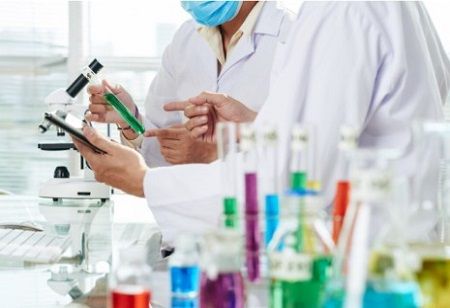India Pharma Outlook Team | Thursday, 16 October 2025

Syngene International, a worldwide contract research, development, and manufacturing organization (CRDMO), has announced enhancements to its facilities aimed at expediting drug discovery and development processes, thereby assisting clients in bringing innovative therapies to market more swiftly in Hyderabad.
The investments encompass a specialized, cutting-edge peptide laboratory in Bengaluru, along with the incorporation of advanced automation throughout the DMPK (Drug Metabolism and Pharmacokinetics) and Direct-to-Biology (D2B) workflows in Hyderabad, enhancing scalability, cost-effectiveness, and data integrity to foster therapeutic innovation.
Also Read: Healthium Partners with Tisgenx to Boost Cardiac Portfolio
The specialized peptide laboratory is engineered to synthesize a diverse array of molecules, such as linear peptides, cyclic peptides, and peptide-drug conjugates, and is capable of supporting synthesis scale-up to 800 mmol (millimole).
With six automated peptide synthesizers functioning concurrently and outfitted with robotic arms, the laboratory significantly shortens project timelines by weeks or even months while guaranteeing consistent outcomes.
Additionally, it incorporates integrated Solid-Phase Peptide Synthesis (SPPS), High-Performance Liquid Chromatography (HPLC), and Liquid-Phase purification, and in conjunction with Quality Control (QC) laboratories.
Futhermore, it offers innovators a smooth transition from drug discovery to development process. Simultaneously, Syngene has undergone an automation-driven transformation in its DMPK operations.
This automation features robotic systems for high-throughput sample preparation, which reduces turnaround times from five days to three and enhances cost efficiency by 30%, while tripling sample capacities, thus providing clients with quicker access to essential data.
The D2B platform further accelerates the hit-to-lead and lead optimization processes by integrating rapid compound design, miniaturized synthesis, and high-throughput screening, saving at least a week for sets of 24 compounds and several weeks for larger sets.